After more than a year of postponed vacation plans, people the world over are yearning to travel again. How many of them are pegging their rest and relaxation hopes on the availability of carbon neutral vacation rentals is hard to say. When a prerequisite for sating a growing wanderlust is sustainability, though, the Berkshires of Western Massachusetts, not surprisingly, have environmentally minded tourists covered. And if the first image that pops into your head is one of a one-room cabin without power or running water, think again. Some of the offerings here are amazing. One rental is so amazing, in fact, that Netflix decided to include it in the upcoming series, The World’s Most Amazing Vacation Rentals, which drops June 18 worldwide.
Million Dollar Listing‘s Luis D. Ortiz, and Content Creators Megan Batoon and Jo Franco include Lee, Mass. on their globetrotting investigation into some of the most out of the way, one of a kind, idiosyncratic, and just plain extravagant accommodations on offer. Their visit to “The Playhouse,” managed by Berkshire native Daniel Dus and his partners at Shared Estates will likely make locals proud that one their own is at the leading edges both of responsible eco-stewardship and what Dus calls the “democratization” of luxury.
In a world where vague terms like “environmentally friendly” are bandied about as marketing slogans, Shared Estates stands out as a firm rooted in the clean energy industry, headed by a Managing Partner with an impressive background in making big things happen. Dus, recently built a utility scale renewable energy company in the United States from scratch that has contracted over $600 million of projects for a $35 billion multinational. Previously as CSO he worked to build Safari Energy, the #1 provider of solar to REITS, which sold to PPL. After 15 years in the solar industry, swanky stayplaces might not seem an obvious career move — until you factor in the energy footprint.
Dus described the evolution of the solar scene that had to happen before projects like Shared Estates could become a reality.
Premium Members: Listen to our entire conversation with Daniel Dus.
(Audio player below visible to members who support the Greylock Glass financially)
“So, 15 years ago, solar was not economic, right?” noted Dus. “We were charging 15 16, 17 cents per kilowatt hour of of electricity, when coal plants were providing power at 6, 7, 8 cents. And what we needed was we needed large scale, in order to reduce that delivered cost of power. Now, solar is the cheapest form of energy ever in the history of humanity — in all time. And that’s only possible because of the scale we’ve achieved.”
The model of Shared Estates, that of an investment vehicle open to anyone with $1,000 to bring to the table, isn’t dependent on environmental sustainability. For Dus and his partners, though, the time was ripe to bring a number of concepts together.
“I think we tried,” said Dus, “to start off from a place of ‘do no evil.’ And when you’re looking at these large real estate properties, they’re typically very heavy carbon emitters. And we didn’t want that to be the case for our real estate. And so we offset all of our energy production by consuming entirely renewable energy and offset other consumption through the retirement of renewable energy credits.”
As for how many people are drawn to the opportunity to travel without ruining their carbon karma, the numbers actually do provide evidence that the public is on board with the Berkshire-based rental firm’s proposition.
“You would think that it’s not super front-of-mind for folks,” Dus challenged. “But actually booking.com, which I think is still the number one booking platform in the world, reports that 70% of people expect to, or want to, stay at an eco-friendly or sustainable stay option in the next year. At the same time, roughly the same percentage of people — about 70% — report that they’re unaware of any eco-friendly brand or sustainable brand or stay option. So what that says to us is there’s a huge gap in the marketplace.”
Dus says that Shared Estates saw evidence of demand among their guests specifically for limited impact on the environment and cleaner stay options. He credits the company’s tremendous success from being in a position to be able to deliver that option to the market.
Of course, beautiful places abound on our little planet Earth, as the Netflix series will, no doubt, remind us. And considering that Dus’ own travels have taken him to at least a few of them, locating Shared Estates core properties in the bucolic Berkshires might not be an obvious choice to folks unfamiliar with the East Coast arts Mecca.
“Well, I am born and raised in the Berkshires in Richmond,” Explained Dus. “And so that certainly informed me in the decision-making process and where to focus for our real estate business. But the Berkshires — I’ve had the chance to travel the world, right? I’ve been to China, Korea, India, and Nepal, throughout Europe — the Berkshire’s truly are special. And we have the number one largest yoga center in North America, the number one liberal arts college in the United States of America, with the largest Museum of Contemporary Art in the country. I mean, that’s, that’s amazing. There’s an amazing concentration of Culture and Arts in the Berkshires. And we still have, in addition to having all these phenomenal things to do, we still have tremendous bucolic beauty. That’s what drove folks there in the late 1800s, and why we have these amazing Berkshires cottages. And that’s why we focus there today.”
Dus said that Shared Estates launched in 2019, before COVID-19 hit, with the core assumption that rural real estate was undervalued and that demand for both sustainable and group travel options, specifically luxury travel options was underserved. He says that the partners’ intuition was borne out with very high occupancy rates for their properties. They have been able, he said to increase rental rates to compensate for that supply/demand scenario.
One could be forgiven for questioning the optics of so publicly promoting opulence in an era when such a vast number of Americans relied on disaster assistance just to survive, and the gap between the haves and the have nots stretches out in sharp contrast. Even the sustainability dimension of Shared Estates would seem gauche to mention were it not for the fact that Dus and his partners are also on a mission to open up grandiose dwellings to the public.

“When I was growing up as a kid in the Berkshires,” Dus recalled, “you’d drive by these these properties every day on your way to school or events or friend’s houses. And I remember thinking, as a middle class kid, that I never set foot in them, right? Like I didn’t have ultra wealthy friends and, you know, I’m not related to the Vanderbilts, or the Westinghouse’s or whoever originally built these estates. But I felt like they should be a public resource. And we see that in the preservation of some of these [cottages] as museums today. But museums aren’t always necessarily fully engaging, as these properties were intended to be as homes and as places to entertain and enjoy 24 hours a day all year. And so the the genesis of Shared Estates is that these properties should be as much of a public access as as they can be in a public asset as they can be. And so we have acquired really historic properties, and many of them because they’re really dramatically underutilized assets.”
Dus noted that one of their recent properties was used only two weeks over the last two years. So, energy and resources went into keeping an 11,500 square foot estate on 40 acres online, just in case someone wanted to stay there. That’s the perfect example of an underutilized asset, he said. By contrast, with the Shared Estates model, these will be available to middle class families for stays at a cost-per-person that would cost roughly the same as booking multiple hotel rooms at a standard hotel to accommodate a small or medium sized group. That kind of accessibility, he says, is why their properties see occupancy rates of 260 or more days a year.
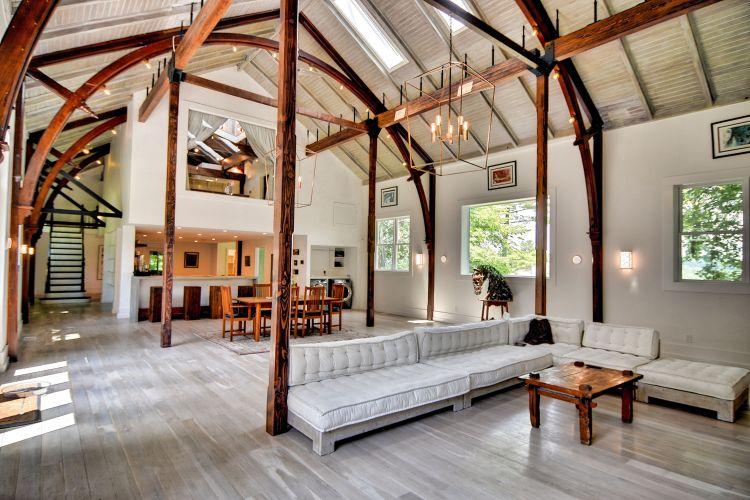
The properties include the partners’ initial property the Playhouse, which will be featured on the upcoming Netflix series, World’s Most Amazing Vacation Rentals along with other highlights of the Berkshires and what they have to offer. Dus made it clear that Netflix insists that most of the details have to remain hush-hush until the series launches, but said that it’s exciting to see the Berkshires featured in front of an international audience.
Although you don’t have to be an investor to book a reservation at a Shared Estate property, there are rewards and discounts for those who are. Dus noted that various local investors from all walks of life have taken the plunge and are now part of the ownership structure of the luscious homes.
“We’re also packaging them,” Dus explained,” as equity crowdfunding vehicles. So folks for the Freeman Berkshire’s could invest for as little as $1,000. They can own the membership interest in the entity that owns that asset. So they can be a real estate owner for as little as $1,000. Not just any real estate, but some of the nicest real estate, really, on planet Earth. And that never used to be possible, because you used to have to be an accredited investor already worth a million dollars or more to participate in standard private equity deals. And so we’re really excited to truly democratize this real estate.”
The property was originally built by George Westinghouse on his 222 acre Berkshires estate in the 1880s as The Playhouse, a theater for his children. His was the first residence in the world powered by AC electricity. Westinghouse named the estate Erksine Park, after his wife’s maiden name. Visitors to the estate have included President McKinley, Nikola Tesla and Lord Kelvin. The Westinghouse family spent their later years on this estate, which was later purchased by the Vanderbilts. The Vanderbilts tore down Westinghouse’s mansion and built their own, which still stands today – they called it Holmwood.
— Shared Estates, on The Playhouse
Shared Estates mission is broader yet that simply offering these unique investment opportunities to Berkshire residents. As guests arrive at these reclaimed vacation spaces, they’re going to be on the lookout for goods and services. As a Berkshire native, Dus has a line on just about every amenity nearby, and connects guests to the best of what the Berkshires has to offer. He says the group has a really strong focus on on keeping capital within the community.
“And so the ways we’re doing that,” he says, “in addition to the equity crowdfunding of these historic estates is we’re also developing a proprietary application that connects local vendors with our guests directly. You know, the Miravals of the world suck profits into large national corporates that are often based…not in the Berkshires. Our investor base is is often from the Berkshires, and we connect our guests with local providers of everything from dance lessons to catering to massage services. And so we’re really trying to make that connection seamless, so we can compete with the largest and most luxurious resorts, but do so in a way where those profits are staying local with local businesses. So we’re excited to be doing that too.”
Like any rustic locale that experiences waves of both tourists and newcomers fleeing the city, the Berkshires has, especially in the last year, undergone something of a boom. As always, there are two sides to growth in the region. Dus says that he gets that, and can see some real advantages in creating awareness of all the opportunities within the county that might draw families to the cities and towns that have seen shrinking populations for three decades.
“Yeah, no, I absolutely agree,” he said. “My sister has worked at Monument Mountain as a teacher for decades; my mother did as well. And you see the impact of population decline on our schools and services and revenues. Core to our philosophy is that that tide will change as the work from home environment improves for workers, and they don’t have to be tethered to the major municipal areas. And I do think that there’s concern for a lack of good rentals in the area, and I understand that concern that these [properties] are transitioning to vacation rentals. This is one of the reasons we focused on these historic estates because, because you know, let’s, let’s face it, there’s not a huge local roster of millionaires and billionaires, right, that live in the Berkshires. No, we’re not taking this housing — 11,000 square foot mansions — out of, you know, affordable housing circuits, and that was important to us.”
Through the buzz that’s already been generated around their carbon-neutral member-owned model (and the surge in interest almost guaranteed by the upcoming exposure on the new Netflix series) Shared Estates is earning a massive amount of exposure for the Berkshires in front of vast numbers of people who have never been to, or even heard of) the area before. Dus described having guests fly from in Europe just because of the quality of the properties. These travelers get exposed to the Berkshires for the first time, and, of course, bring significant revenues into the economy. He says that believes that more exposure will result in more people relocating to the Berkshires as transplants permanent.
In the meantime, Shared Estates seems content that Gilded Age “cottages” are being repurposed so that regular folks can have a chance to enjoy a little bit of the extravagance they were intended to impart in ways that bring some welcome investment and income to the area.
Dus declared, “we’re really taking these properties out of the hands of the top point 1% and making them accessible.”
CREDITS for World’s Most Amazing Vacation Rentals
Hosts: Million Dollar Listing’s Luis D. Ortiz, and Content Creators Megan Batoon and Jo Franco
Created By: George Verschoor and Will Spjut
Executive Producers: Tom Forman, George Verschoor, Will Spjut, Jenny Daly, and Jon Beyer
Showrunners: George Verschoor and Will Spjut
Production Company: Critical Content

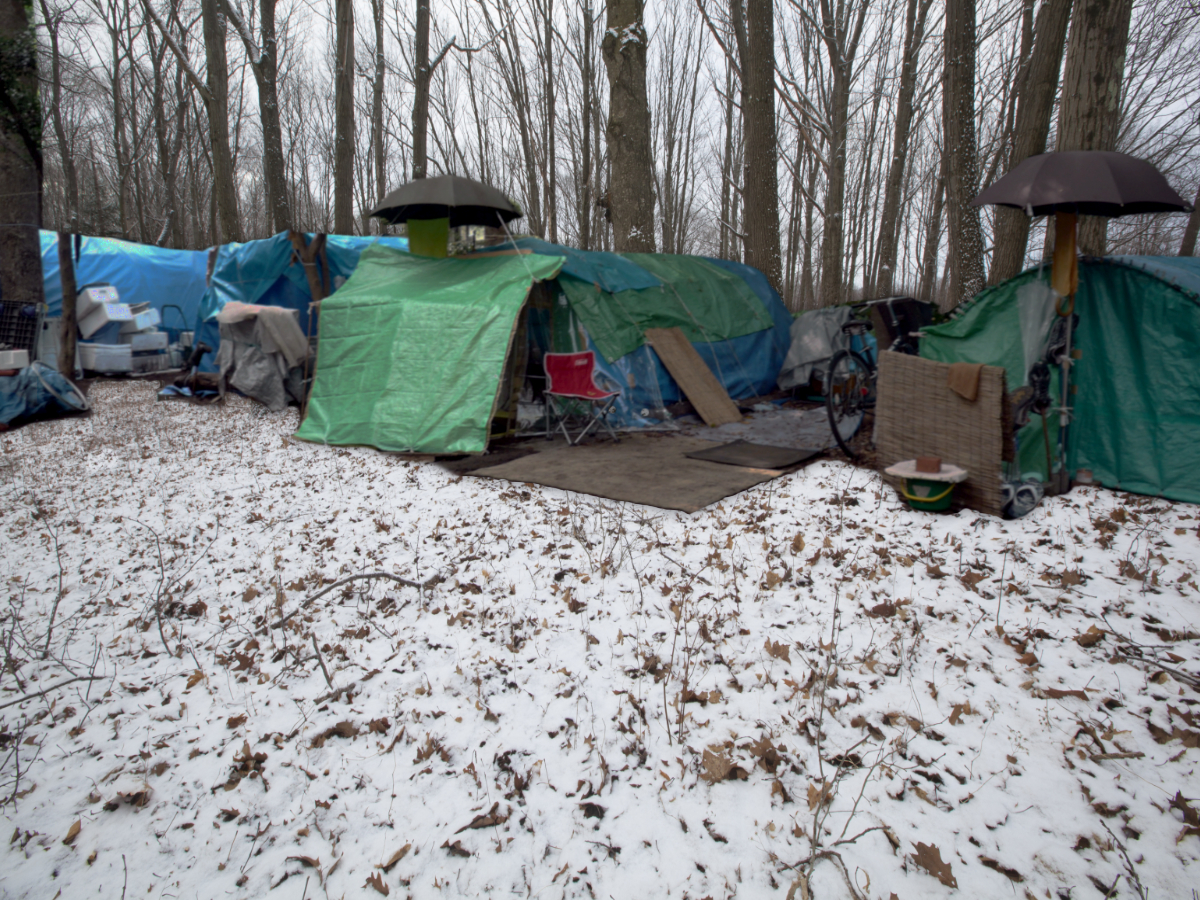
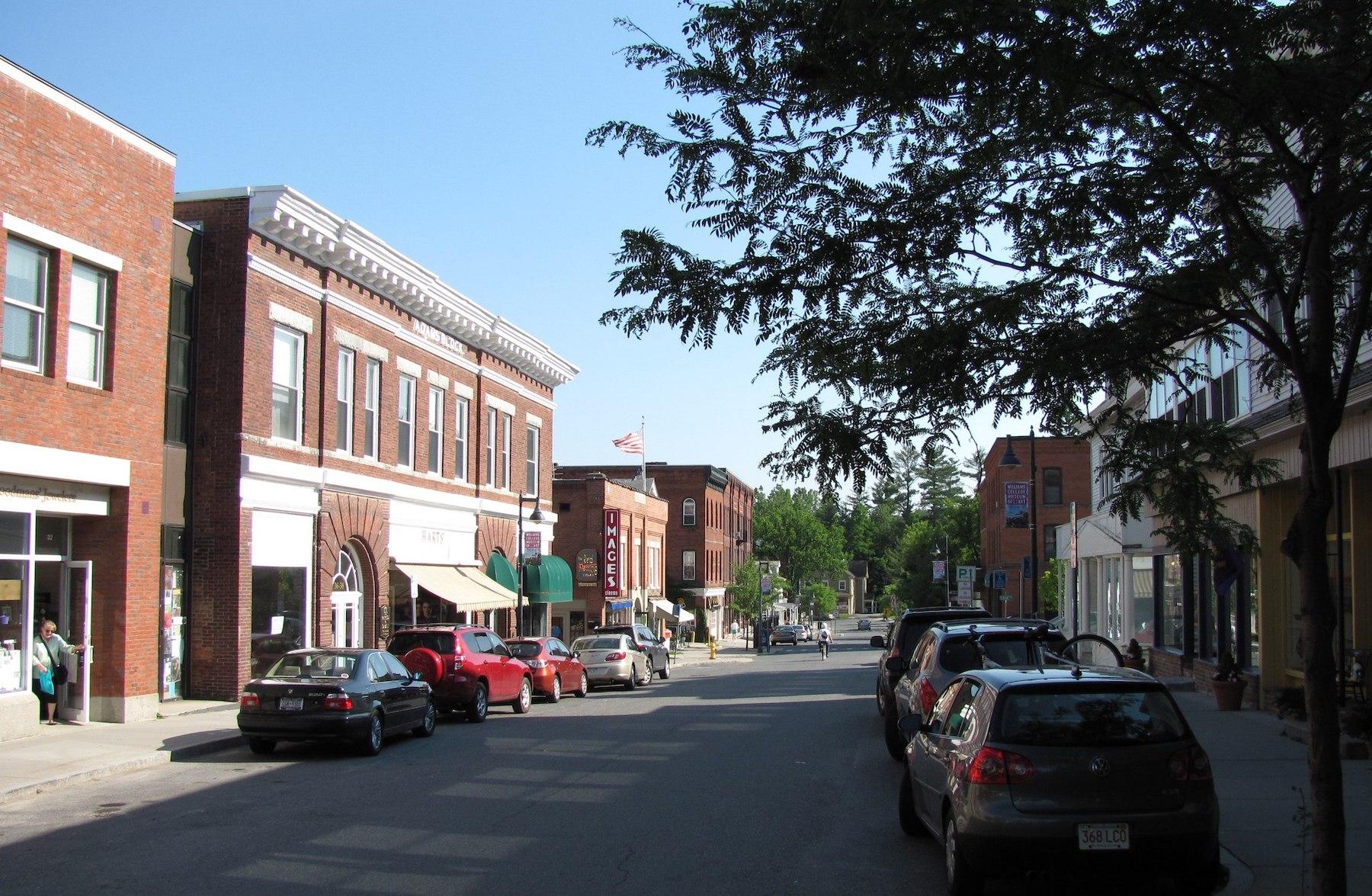
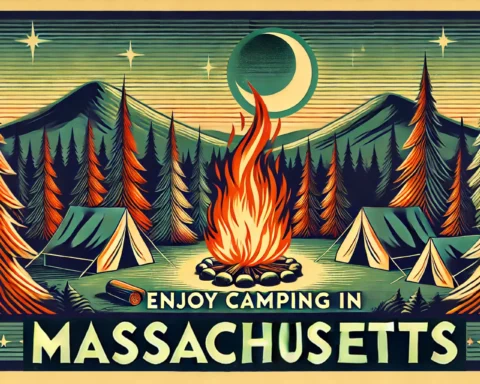
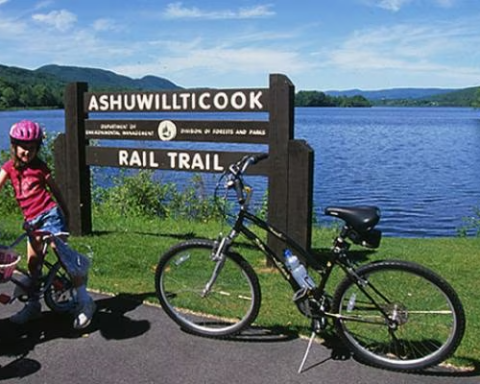
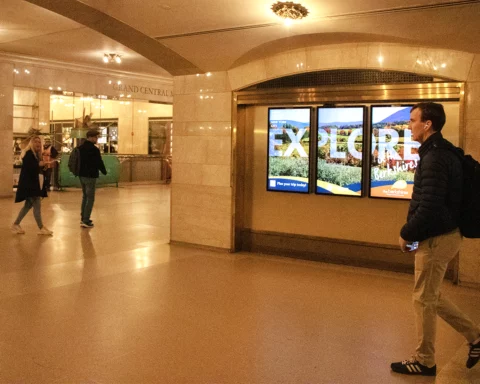
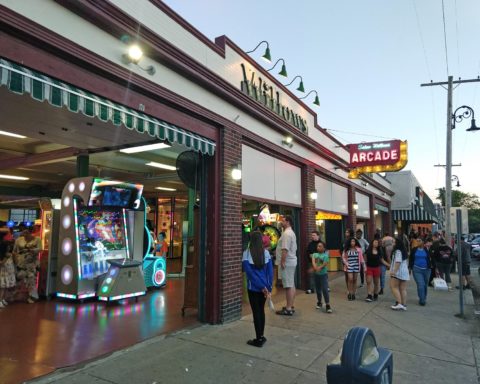










You must be logged in to post a comment.